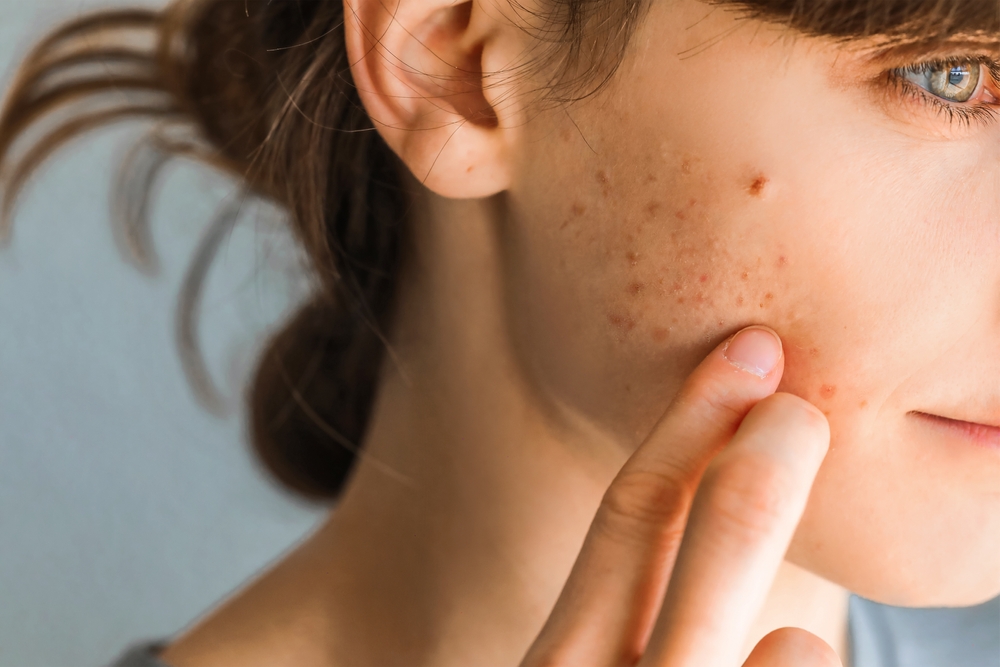Acne, a prevalent skin condition affecting millions globally, challenges those who experience it and poses unexpected consequences for our environment. OMNIA TeleHEALTH delves into the lesser-known ecological effects of acne management practices, offering a fresh perspective on everyday skincare routines.
The Hidden Eco-Cost of Acne Management
Chemical Runoff and Water Pollution:
Acne treatments, ranging from over-the-counter creams to prescription medications, often contain harsh chemicals. When washed off, these substances can enter waterways, contributing to pollution and harm to aquatic ecosystems. While effective for acne, ingredients like benzoyl peroxide and salicylic acid may pose risks to marine life.
Waste from Single-Use Products:
The acne care industry relies heavily on single-use products, such as disposable wipes and pads, contributing significantly to landfill waste. Packaging materials for acne treatments also add to the environmental burden, with plastic containers and wrappers often not appropriately recycled.
Carbon Footprint of Acne Care Products:
Acne treatments’ production, packaging, and distribution contribute to carbon emissions. The carbon footprint of these seemingly small items can be substantial from the energy-intensive manufacturing processes to the transportation of products worldwide.
Rethinking Acne Care: Sustainable Practices
OMNIA TeleHEALTH encourages a shift towards more sustainable acne management practices. Opting for products with eco-friendly packaging, supporting brands committed to reducing environmental impact, and choosing treatments with natural ingredients can make a difference.
Natural and Organic Acne Solutions:
Incorporating natural and organic products into your acne care routine can reduce the reliance on harsh chemicals. Ingredients like tea tree oil, aloe vera, and green tea have shown promise in managing acne with minimal environmental impact.
Eco-Friendly Packaging and Refills:
Seeking out brands that utilize recyclable packaging, offer refill options, or even adopt zero-waste policies can help diminish the ecological footprint of your acne care routine.
Conservation-Focused Skincare Brands:
Supporting companies prioritizing sustainability through renewable energy use, water conservation in manufacturing, or contributions to environmental causes can foster a healthier planet.
OMNIA TeleHEALTH: Your Partner in Eco-Conscious Acne Care
OMNIA TeleHEALTH is committed to guiding individuals toward environmentally responsible healthcare choices. By offering telehealth consultations, we minimize the carbon footprint associated with traditional clinic visits and support patients in finding sustainable solutions for acne management.
Beyond Clear Skin: The Environmental Healing Journey
Adopting a more eco-friendly approach to acne care benefits your skin and contributes to our planet’s well-being. By making conscious choices about the products we use and the practices we support, we can help mitigate the environmental impact of acne treatments.
Pioneering Sustainable Acne Care Solutions
The journey towards sustainable acne management is ongoing, with innovations in green chemistry and eco-friendly packaging leading the way. OMNIA TeleHEALTH is at the forefront of this movement, embracing and promoting practices that protect both skin health and the environment.
A Greener Path Forward in Skincare
In conclusion, the relationship between acne care and environmental health is complex but not without solutions. By reevaluating our skincare routines through an eco-conscious lens, we can make strides toward reducing the environmental impact of acne treatments. OMNIA TeleHEALTH invites you to join this green revolution, empowering you with knowledge and support to make sustainable choices for your skin and the planet.
For more information on eco-friendly acne care solutions or to consult with a healthcare professional about your skincare needs, call us at 251-220-8875.
Sources:
- Environmental Studies on Skincare Pollution: Research highlighting the impact of common acne treatment ingredients on water pollution and aquatic life.
- Sustainability Reports from Skincare Brands: Documentation from brands that have successfully implemented eco-friendly practices in producing and packaging acne care products.
- Green Chemistry in Dermatology: Studies and reviews discussing the development and efficacy of natural, organic, and less environmentally damaging acne treatment options.


